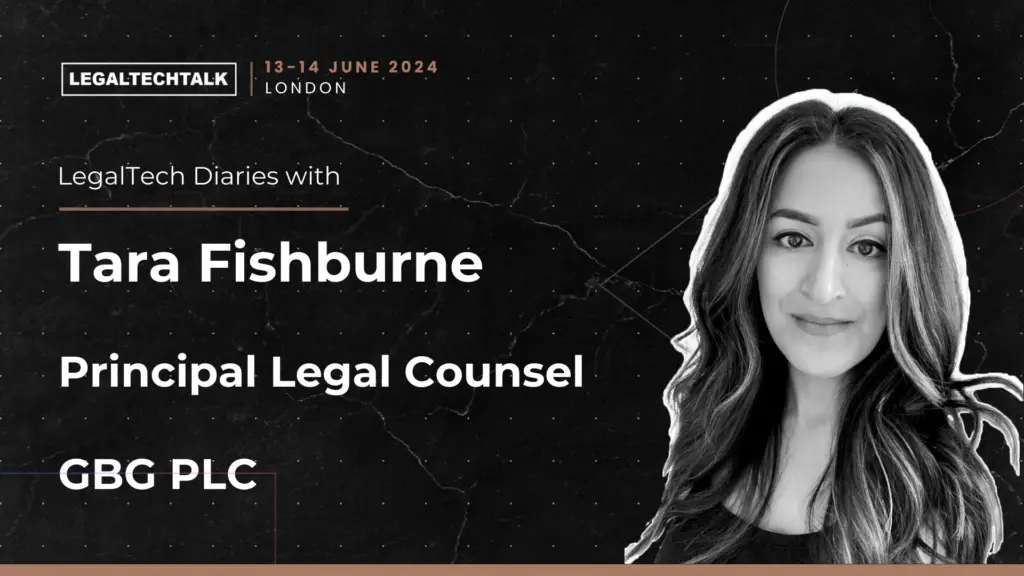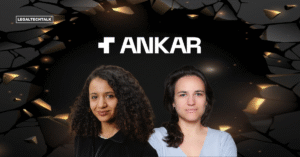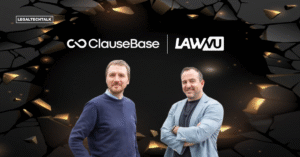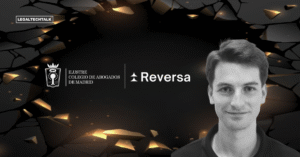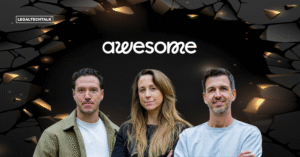In-house legal eagle Tara Fishburne brews a potion for efficiency in this rapid-fire interview. Her ingredients? Whipping up NDAs, novations faster than you can say “automation” so lawyers fight bigger battles. “Kill the waste,” she says. Embrace tech or risk getting left in the dust by peers zipping deals through AI helper bots. Her tips for digitally-driven change:
1. Pressure test old ways that make you want to tear your hair out.
2. Get cyborg-level creative with existing tools before splashing cash.
3. Temper fears of robots stealing jobs. AI’s here to pair up, not replace.
4. Map out a step-by-step quest, celebrate small wins like a Hobbit.
5. Full steam ahead, but still change course if you hit icebergs.
Bradley Collins: Hi Tara, efficiency seems to be the name of the game for most in-house counsel & legal ops leaders – please tell me a little about what you’re doing in this area, challenges you’ve faced, and some of the wider business outcomes from your implementations
Tara Fishburne: It’s simple really – to be efficient means the ability to achieve an end goal with little to no waste of effort or energy. As in-house Lawyers, we have a common goal with our business colleagues, and it’s in all our interests to achieve that goal as quickly and efficiently as possible.
To do this, we started with the obvious; low-level, low- risk, repetitive legal tasks such as NDAs and Novations. Why spend time negotiating an NDA, when they all pretty much say the same thing, just in slightly different ways? It wastes time, it doesn’t motivate your Lawyers, and it can really stall commercial discussions and frustrate business colleagues. We adopted oneNDA and went one step further by fully automating the process of implementing an NDA, from generation, right through to signature. The responsibility now sits with the businessperson to generate the NDA through a DocuSign PowerForm, which automatically sends the NDA (already pre-signed by us) to the counterparty for signature. No need to contact Legal, no need to negotiate, and no need to involve the Sales Operations Team in the admin side of things. We’ve done something similar with Novations and provided a step- by-step guide to business colleagues to they can ‘self- serve’. The best thing about all of this? It cost the business absolutely nothing. We innovated by using our existing tech stack, rather than introducing anything new.
One of the biggest challenges, as with any tech innovation or new process was adoption. When a business has been doing something the same way for such a long time, it’s always a challenge to get them to come along on your journey of innovation. The best way to overcome that challenge is to get talking with your business colleagues. Have honest conversations about what is frustrating them about the process, what’s not working, and what the ideal outcome looks like. Show them the benefits of your innovation, and how it will be better for them, rinse, and repeat!
“AI is there to enhance, not replace; I think we are decades away from that. We need to move away from the archaic way of ‘lawyering’ and embrace the tech- nology and tools that we are fortunate enough to have at our fingertips“
Bradley Collins: I’ve witnessed some hesitancy from lawyers not wanting to ‘lean in’ to automating the mundane & repetitive tasks, for various reasons – why do you think this is, and do you have any further thoughts on this topic?
Tara Fishburne: Some Lawyers are nervous about automation and AI; there’s been so much talk in the industry about Lawyers being ‘replaced’ by AI, but I think we’re looking at it in the wrong way. AI is an incredible thing to have in our toolbox, that can help us to be more efficient. AI is there to enhance, not replace; I think we are decades away from that.
Some Lawyers may feel that automating traditional legal tasks (such as NDA’s, Novations, and even low-level/low- risk negotiations) dilutes the role of the Lawyer. I believe that it enhances the role of the Lawyer and shows that we are business enablers, rather than a profession that has historically been viewed as stopping business or slowing it down. We need to move away from the archaic way of ‘lawyering’ and embrace the technology and tools that we are fortunate enough to have at our fingertips. Other departments within organizations are adopting AI, technology, and automating tasks to be more efficient; why should the Legal department be any different?
GBG’s Legal Team has been the trailblazers of innovation and adoption of automation and legal tech; when I’ve spoken to peers in the industry, we actually very far along on our legal tech and automation journey. Interestingly, we’ve never had the money in our budget for legal tech, but that hasn’t stopped us. We ourselves became so frustrated with inefficient processes, the length of time it took from contract to value, and dealing with repetitive low-risk tasks that didn’t need to sit with a Lawyer that we sort of took matters into our own hands and had a look at our existing tech stack to see what we could come up with. What we’ve demonstrated is that you don’t need a big budget to make big improvements. Spend time with your business colleagues and understand the pain points. Fix inefficient processes, and then have a look at your existing tech stack and see how you can use it differently and innovate.
Bradley Collins: Finally, as an award-winning in-house legal team (congrats again btw!), what final advice would you offer to your peers when it comes to driving positive transformation within their respective organisations.
Tara Fishburne: Thank you! I could talk about this all day, but some key pieces of advice would be:
- Carry out an internal evaluation of processes, systems, and existing technology. Strategize, and define a transformation roadmap with clear timelines, milestones, and goals.
- Engage your key stakeholders, listen to them, and ensure that their pain points are acknowledged and dealt with. If you bring them along on the transformation journey, adoption of the transformation will be more successful.
- Be adaptable and agile; not everything on your transformation roadmap will go as planned, so be prepared to adapt your roadmap.
- Be patient and committed. Some things may take longer than you would like, and you may face unforeseen setbacks along the way. Believe in the transformation and the outcome and stay committed.
- Celebrate your successes! It’s important to pause and look back at how far you have come on your transformation journey, and to celebrate your achievements. Acknowledge the success of your transformation and share it with your organization.
Read all 13 interviews with legal experts in our latest LegalTech Diaries Volume 3: https://www.legaltech-talk.com/legaltechdiaries/volume-3/
Tara will also be speaking at LegalTechTalk 2024 on 13-14th June 2024 at InterContinental O2 in London where over 2,500 in-house and law firm leaders, legaltech startups, and investors will join us for 2 full days of insights and networking. See more here: https://www.legaltech-talk.com/

